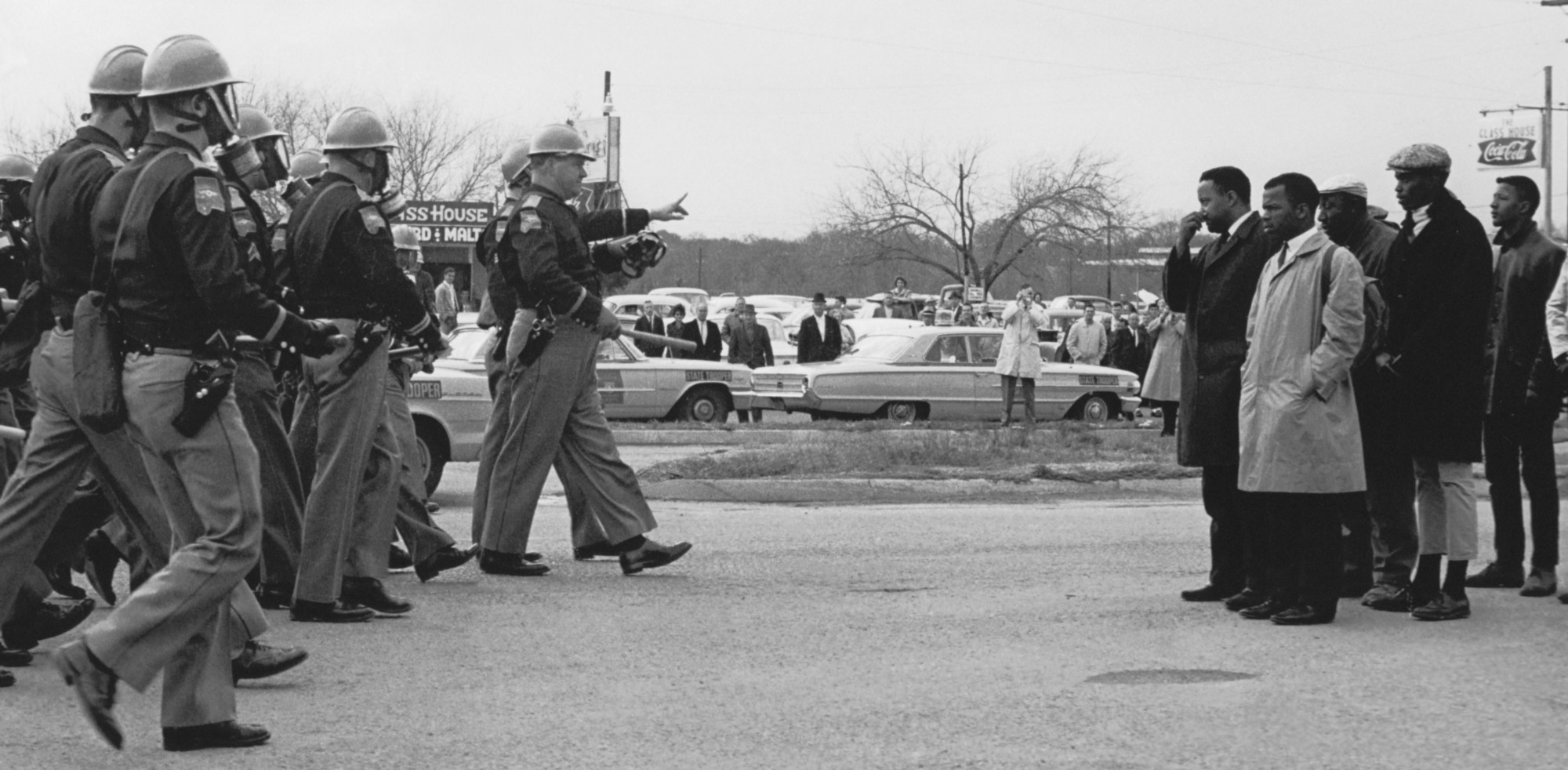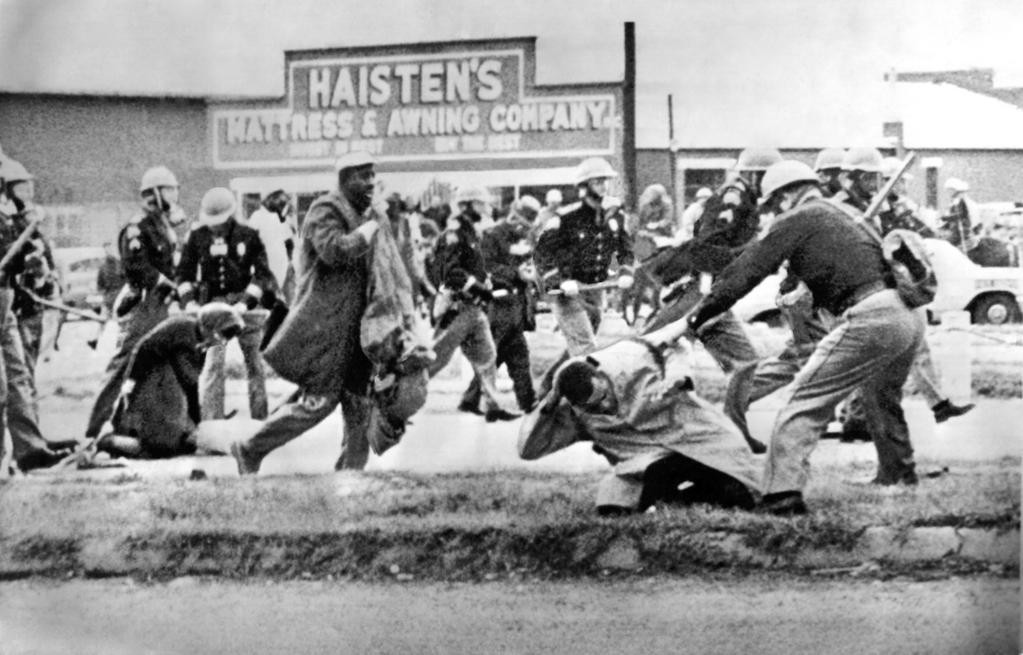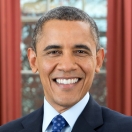
Ed. note: This is cross-posted on Medium.
The right to vote is one of the most fundamental rights of any democracy.
Fifty years ago today, because of the sacrifice of countless men and women, that right was secured for more Americans.
On August 6, 1965, President Lyndon Johnson signed the Voting Rights Act into law — breaking down legal barriers at the state and local level that had prevented African Americans and others from exercising their constitutional right to vote.
Because of that law — one of our nation's most influential pieces of legislation — Americans who were previously disenfranchised and left out of the democratic process were finally able to cast a ballot. The law was designed to ensure that all American citizens, regardless of the color of their skin, had an equal opportunity to make their voices heard.
But that law didn’t come to pass because folks suddenly decided it was the right thing to do.
This past March, I had the honor of traveling to Selma, Alabama for the 50th anniversary of the “Bloody Sunday” march from Selma to Montgomery. Those who marched over the course of those five days in 1965 were fighting to ensure that African Americans could exercise their right to vote under the 15th Amendment of our Constitution. They were marching in the face of a segregationist system that wanted to deny them that right.
And on one afternoon, two visions of America met on the Edmund Pettus Bridge. Those nonviolent marchers, representing the idea that all men and women are created equal and deserved to be treated as such, stared into the faces of those who represented a South that stood for the racial segregation and oppression of Jim Crow.
Roughly 600 people stood on the right side of history that day — armed only with their faith, and the conviction that we could be better. They were willing to sacrifice their own bodies in order to help bring America closer to its ideals of equality and justice for all.
Men and women were bloodied on that bridge. Bones were broken on that bridge. And because of the sacrifices made there, their vision — of a just America, a more fair America, a more equal America — ultimately triumphed. We made ourselves a more perfect union.
Today, each time we walk to the polls to cast a ballot, we cannot forget the heroes that helped make that possible for all of us. Jimmie Lee Jackson. John Lewis. C.T. Vivian. Joseph Lowery. Dr. Martin Luther King, Jr. And so many others whose names aren’t known to history — ordinary citizens who made extraordinary sacrifices in order to ensure that all of our voices could be heard.
We owe them a great debt. I am certain I wouldn’t be where I am today without their sacrifices.
But as John Lewis said on that bridge when we commemorated the 50th anniversary of that day this past March, “There’s still work to be done.”
Fifty years ago, registering to vote across much of the South meant guessing the number of jellybeans in a jar or bubbles on a bar of soap. And while the Voting Rights Act broke down many of the formal and more ridiculous barriers to voting, today — in 2015 — there are still too many barriers to the vote, and too many people trying to erect new barriers to the vote. They’re even written into the code of law in some parts of our country — provisions specifically designed to make it harder for some people to vote.
Laws that roll back early voting. Laws with restrictive photo ID requirements. Laws that lead to improper purges of voter rolls.
What’s more, we’ve seen steps to weaken the Voting Rights Act itself. Two years ago, in the case of Shelby County v. Holder, the Supreme Court struck down a key part of the law, which has allowed a number of states to change their voting laws without having to comply with the important procedural protections put in place to safeguard against discrimination.
I've therefore called on Congress to restore the Voting Rights Act. We must work to ensure every American has equal access to the polls.
Across the country, there are people coming together around this issue. Right now, for instance, the NAACP is mobilizing activists for a 40-day march from Selma all the way to Washington, D.C. in support of a number of issues — one of which is “uncorrupted and unfettered access to the ballot box.”
There’s still work for us to do.
Now, as shameful as it is that laws are being designed to keep people away from the polls, here’s something just as troubling — if not worse:
Among those of us who can vote, far too many of us choose not to.
After that Supreme Court decision, Congressman Lewis told the country in stark terms what that vote meant to him.
“The vote is precious,” he said that day. “It is almost sacred. It’s the most powerful nonviolent tool we have in a democratic society, and we’ve got to use it.”
When we sit at home on Election Day, we give away our power. We give away our voice. We give away our ability to help shape the future of our communities and this country we love.
There is no possible excuse for it.
It may be easy to look at Washington these days and feel frustrated with the pace of change, and to lose hope in the political process as a result. But we can't give in to that cynicism. Because our government — our democracy — is us. It’s only as good as the people we elect. It only reflects our will when we exercise it.
It would have been easy for those marchers 50 years ago to accept things as they were, to stay in the place they were made to believe they belonged, to succumb to the idea that change was not possible.
What they knew and what we need to remember today is this: Change doesn't come easy, and it doesn’t happen overnight. You have to fight for it.
Our country changed for the better because those marchers chose to do the hard thing. They chose to fight for it. They risked bodily harm for it. And each day, they woke up and picked up that work again.
Today, we don’t just do ourselves — and this country — a disservice when we choose not to exercise that fundamental right. We dishonor those who fought so hard to give us that right in the first place.
All of us have to play a part as citizens. If you run a business, you can make a commitment to give your workers time off to vote. You can use your time to volunteer to help register new voters.
And at the very least, you can get out there and vote.
Every day, we carry on the work of making this union a little more perfect for the next generation. And this fight is just as important now as it ever has been.




